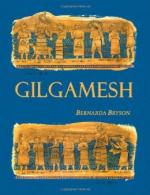|
This section contains 340 words (approx. 1 page at 400 words per page) |

|
Each of the principal gods of Gilgamesh represents an aspect or force of nature, and such pantheism is not unusual in old myths. Although a modern reader might be tempted to label the religion of the Mesopotamians as mere "superstition," the text repeatedly demonstrates that these people took their deities seriously. The reader must accept the fact that the persons in the tale have a close relationship with their gods, which are assigned human traits as well as supernatural powers. What is striking is the erratic behavior of the deities. Even Anu, the chief of the gods, argues in an almost perverse human manner with the elders when they propose the creation of Enkidu. He likes Gilgamesh and enjoys the high walls that he has built simply because he likes to sit on them and watch the activities of the humans in the city.
An unsettling...
|
This section contains 340 words (approx. 1 page at 400 words per page) |

|




